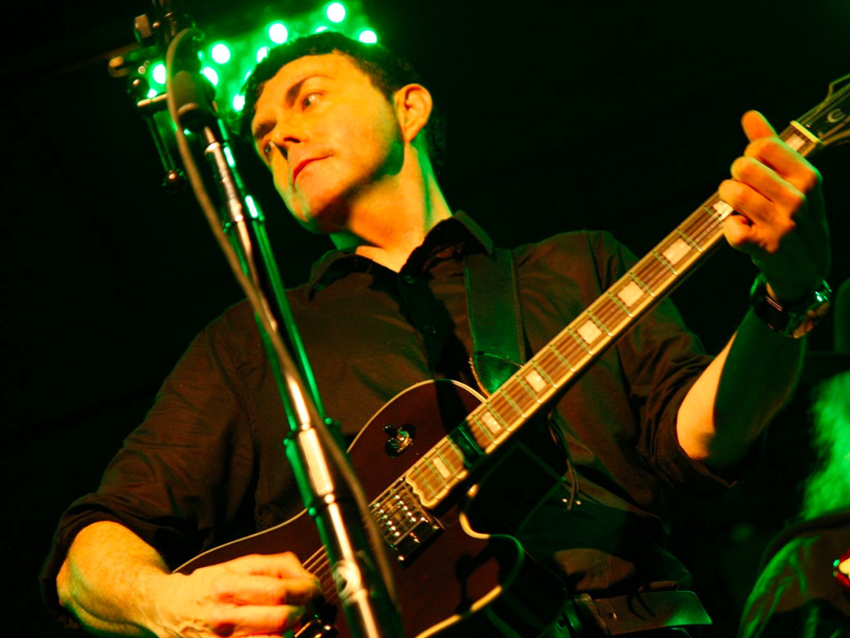
Richard Barone picks 10 essential guitar albums
During his career with the seminal group The Bongos and as a restlessly ambitious and eclectic solo artist, Richard Barone's gift for rich, lasting melodies and inventive song structures has gone hand in hand with a wildly artful approach to the guitar. Whereas most musicians use an EBow as a gimmicky effect, Barone employs it as a vital, resonant voice in his enveloping soundscapes. And in 1987, his majestic, acoustic-based album Cool Blue Halo, predating MTV's Unplugged by two years, resulted in the phrase "chamber rock."
Barone formed many of his ideas about how guitars should sound by the Beatles records he heard as a kid. "Those compressed Rickenbackers through Vox amplifiers had such an impact on me," he says. "But they were also playing Gibson J-160Es through the same Vox amps. That particular sound, with that certain kind of jangle to it, became the base foundation of what I started working on."
In compiling his list of 10 essential guitar albums, however, Barone concentrated on the wholly electric side of things. "Things can get a little too 'all over the place' when you try to put everything together, the acoustics and the electrics," he explains. "I think it's unfair, really, because they’re really two different animals. A Bob Dylan album is not a Led Zeppelin album, so you can’t put them in the same competitive field, no matter how much you might love them."
On the following pages, Barone runs down his choices, singling out records that, in his view, spread the waters of sonic experimentation. "I can appreciate virtuosity, but if an album doesn’t take me to somewhere unexpected, it’s not going to be one of my favorites," he says. "Every record I listed here was a game-changer when it came out, and if you put it on now and heard it for the first time, it still could be.”
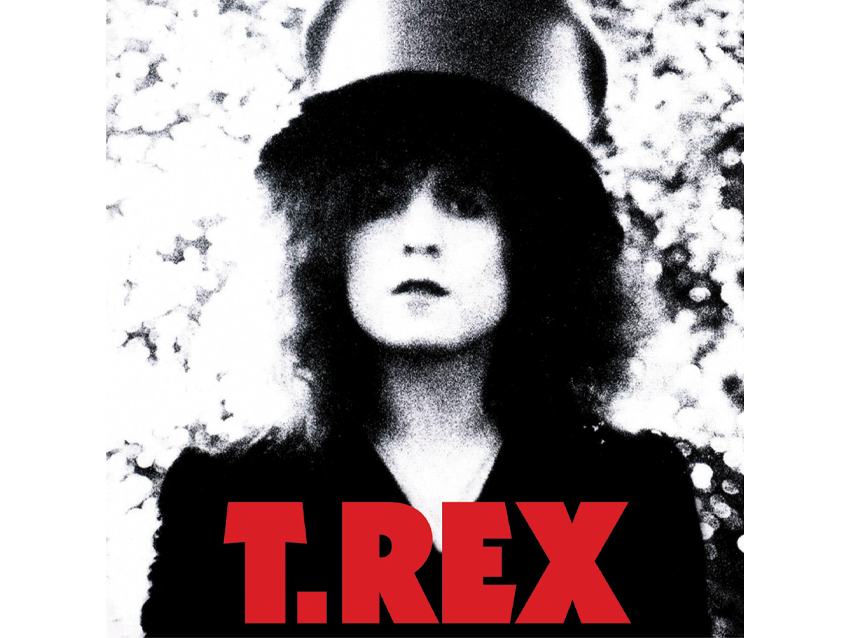
T. Rex - The Slider (1972)
“Marc Bolan wasn’t a virtuoso, but his intelligent use of the electric guitar, particularly on this album, was a total dealmaker for me. I remember hearing it at somebody’s house, and even on that first listen, I could tell it was a remarkable record. The continuity of it from song to song really jumped out at me.
“Marc intended the guitar to sound a certain way throughout the album. It never felt improvised, but there was still a lot of rockin’ soloing on it. Everything was very tight and well thought-out, and of course, there was the crunchy sound that Tony Visconti got – so perfect. A very important record, in my opinion. It certainly changed me.”
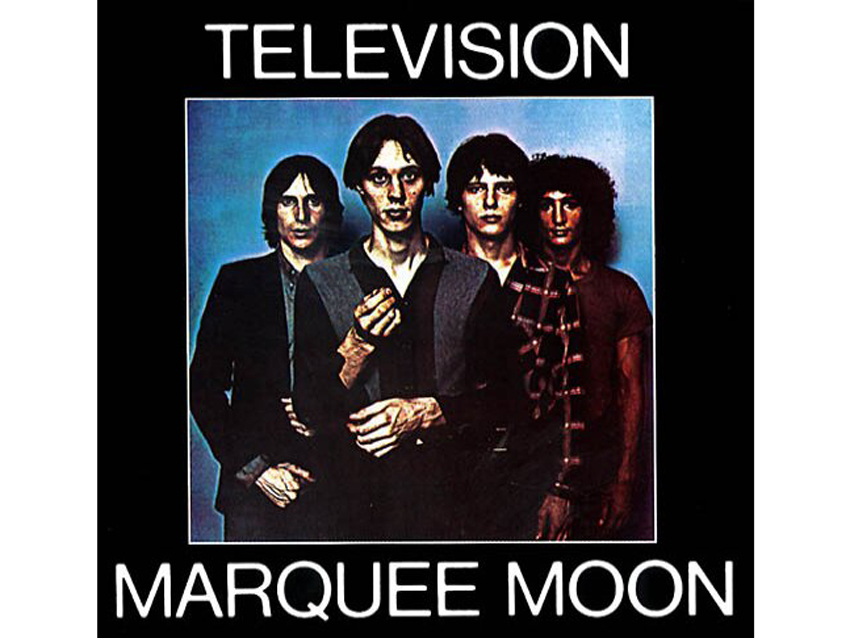
Television - Marquee Moon (1977)
“This record really called out to me: I was still living in Florida at the time it was released, surrounded by Allman Brothers and Skynyrd, but I was more of an Anglophile – I liked urban sounds. When Television came out, I thought that Tom Verlaine and Richard Lloyd were able to take the Allman Brothers aesthetic and transfer it to something different that was hip and urban.
“There was a jam mentality around at the time, but it wasn’t a New York thing; it was a Southern thing or it was coming out of San Francisco. Television kind of said, ‘OK, you can solo, but you can be cool.’
“I couldn’t really tell who was playing what, but I didn’t care, either. I just liked the way the guitars sounded, the interplay. It wasn’t country or pseudo-country or whatever was happening where I was living – it was very fresh and compelling.”
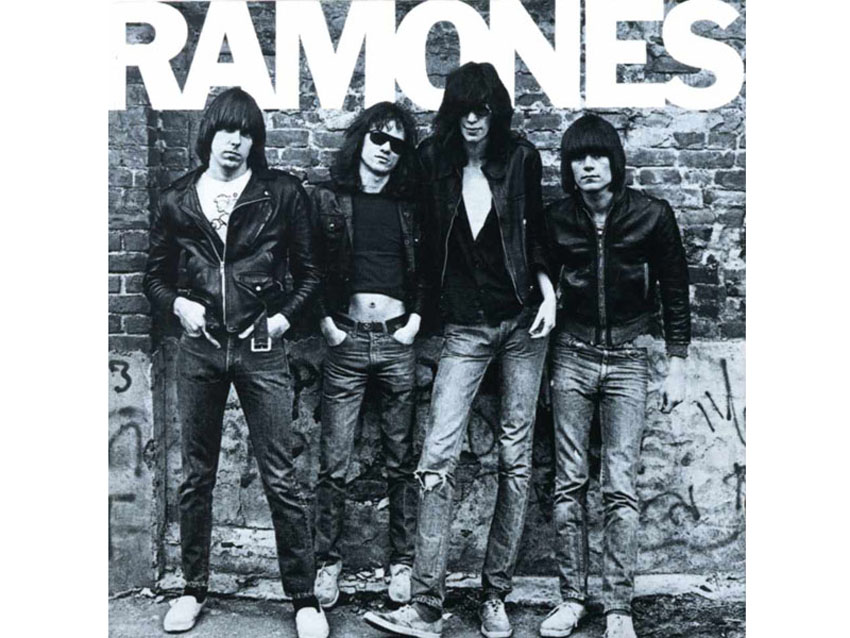
Ramones - Ramones (1976)
“Another cool urban record – sort of a theme here. I like all of the Ramones' albums, but they laid down the law with the first one. The guitar on the left and the bass on the right – I think that’s how it went – was so amazing, this huge wall of sound coming at you. As soon as the needle hit that first groove, I was like, ‘Whoa!’
“There are no solos, of course, but who cares? The music was cool and the playing fit what they were doing beautifully. Actually, it was a refreshing change in an era where everything had to have long guitar solos. Here was a band that just said, ‘All that other stuff isn’t important. Here’s everything you need.’
“The recording is so big and fat and orchestral; you can really hear a symphony in those distorted chords. The Ramones left a lot to the imagination. It was a very intellectual listening event. As dumb and silly as they liked to come off – and that’s not a put-down, because I love them – there was a real intelligence behind them, particularly in that guitar presentation.”
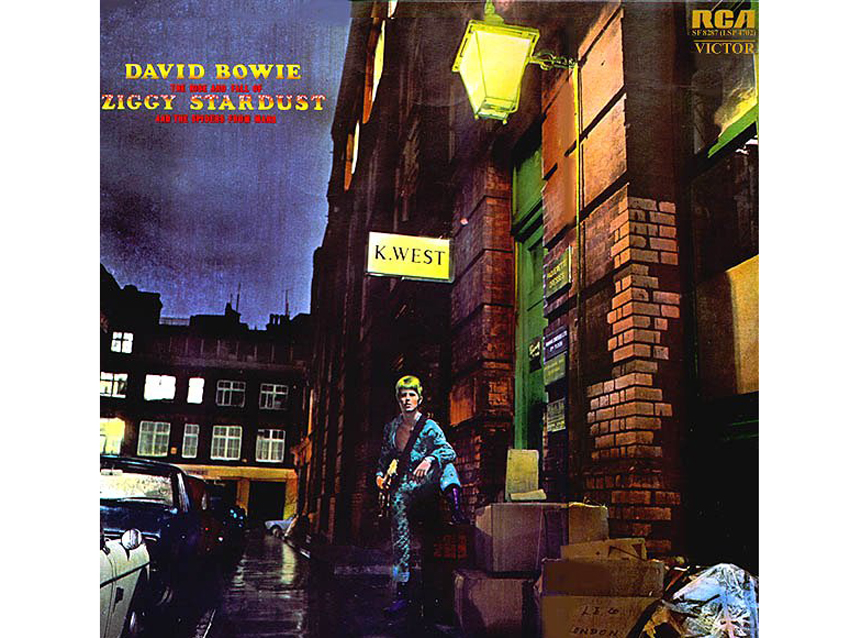
David Bowie - The Rise And Fall Of Ziggy Stardust And The Spiders From Mars (1972)
“It’s all about how a guitar is used, and Mick Ronson was an impeccable arranger. The way he placed the guitars in the recordings really informed the sound of the whole album. He had a very developed sense of composition.
“On the title cut, the tightness of his chording and his soloing is so well thought-out that it reminds me of how a composer would score a symphony. The album itself may not be original, but the way it’s put together, and the way the guitars are arranged, is highly original.
“I love the intelligent, theatrical use of the guitar. And even on something like Suffragette City, where Ronson really rocks out, it’s still beautifully composed. That song, in particular, is kind of a precursor to the Ramones. Its lineage probably goes back to The Stooges and Fun House.”
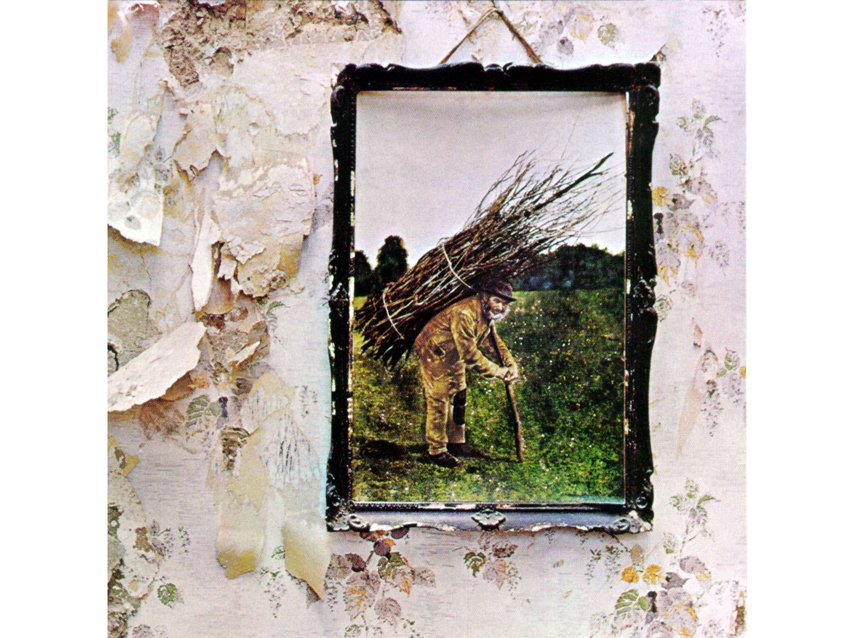
Led Zeppelin - Led Zeppelin IV (1971)
“Everybody has to put this album on their list, but there’s a reason for that: It is what it is. Just for Black Dog, you have to include it. It showcases Jimmy Page’s guitar playing so beautifully. In so many cool ways, this album exemplifies Jimmy’s importance as a guitarist, arranger and sonic master. And you know... it's just great! [Laughs] There’s no way around it.
“To be honest, I resisted Led Zeppelin at first. As a punk and a contrary kind of kid, I didn’t want to like them because everybody was into Zeppelin; I thought, ‘OK, I have to go someplace different. I can’t follow the norm.’ Zeppelin were one of those bands that played the Tampa Stadium, so I didn’t want to be part of the crowd. Finally, the resistance was worn down, and I discovered what I had been missing. It's hard to pick one Zeppelin album. Houses Of The Holy is amazing, but that has a lot of keyboards on it. Led Zeppelin IV feels like such a bold guitar album that really sums up Jimmy Page.”
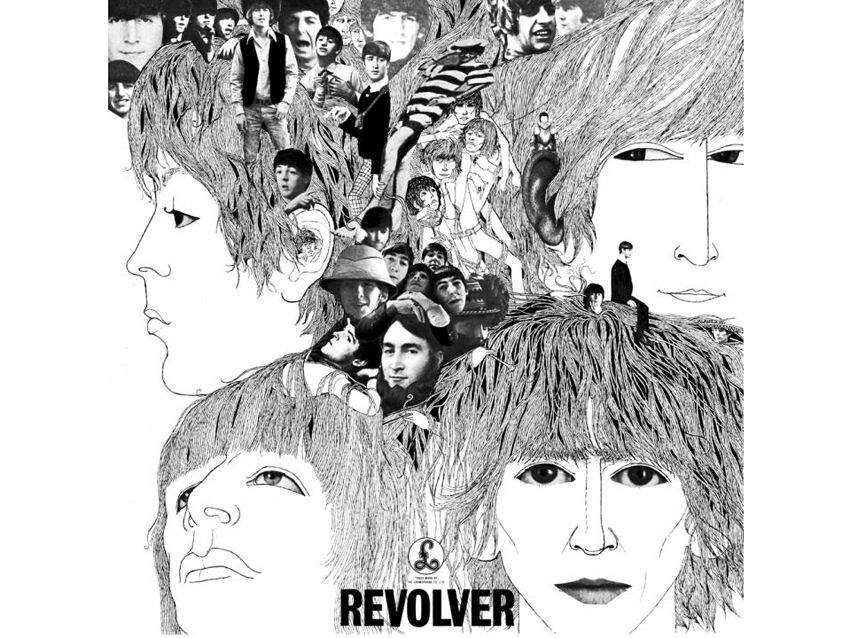
The Beatles - Revolver (1966)
“I had to pick one Beatles album, because the band was such an influence on me and everybody else. I chose Revolver because it’s a real electric guitar album. They were exploring a lot of sustained sounds – I’m not sure if George had switched to an SG yet – and there’s a really rich humbucker feel to things like Taxman.
“Tomorrow Never Knows, She Said She Said – they were experimenting with backwards guitars and doing some very interesting treatments. This was a tremendously exciting time for The Beatles and for recording in general; they were really pushing pop music into a whole new area.
“The band got into all kinds of new instruments and using the studio in creative ways on other albums pretty quickly, but here they’re playing a lot of guitars and creating such compelling sounds. And Your Bird Can Sing has an incredible riff. Not many people can play it correctly; it’s pretty intricate and tricky. How do you even write such a thing? It's genius."
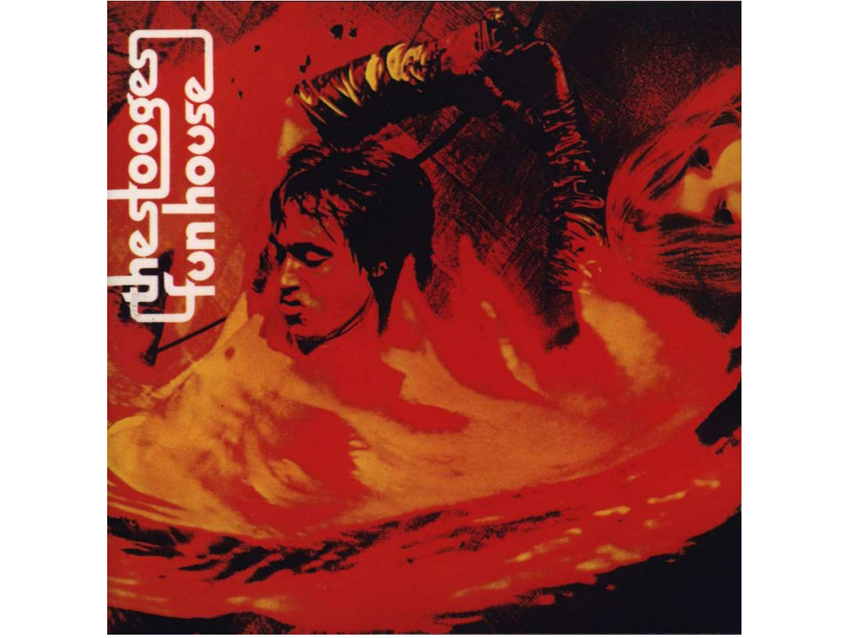
The Stooges - Fun House (1970)
“Almost like the Ramones or Suffragette City, there's that big wall of distortion coming at you. It’s the power of the electric guitar – symphonic, full and all consuming. It beautifully matches Iggy Pop’s persona.
“When a band really clicks, it’s a truly special thing. Here, the force of the electric guitar rises up and defines the band, the spirit of the songs and, again, the frontman. Everything becomes one, but it starts with that guitar.”
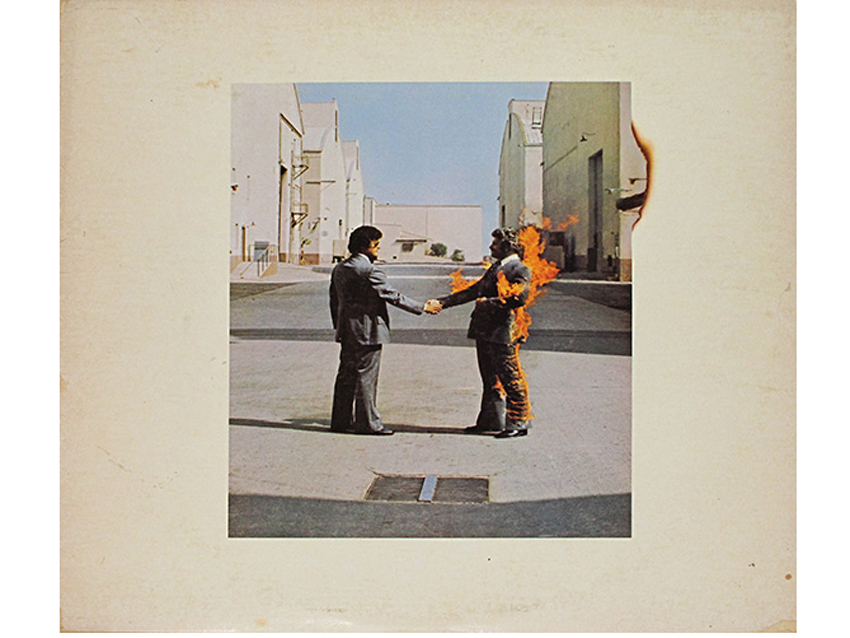
Pink Floyd - Wish You Were Here (1975)
“Again, this is a band I resisted for the same reasons as Led Zeppelin – everybody was into them, and I wanted to find my own bands. Other than The Beatles, I didn’t want to like the big, famous bands. Floyd would come into town and take things over when they played the stadium.
“Years later, my best friend at the time, Nicholas Schaffner, who wrote The Beatles Forever and Saucerful Of Secrets, took me on tour with Pink Floyd when he was doing interviews for his book, and that’s when I really got into that group and what David Gilmour could do with a guitar. We would have dinner every night before the show, and David would walk from the table, located literally five feet from the stage, and play songs like Comfortably Numb. It was pretty astonishing – and eye-opening. I was blown away.
“I wanted to pick a Pink Floyd album that really spoke to me about how I felt about David’s guitar playing, along with the sentiment of the record and how it’s about the bandmate they lost. The opening riff on Shine On You Crazy Diamond, what he can do with those few notes – it’s unbelievably beautiful. The sound reminds me of church bells. That a guy who can really rip chose to just use a couple of well-placed notes says a lot about the breath of his vision and his poetic approach to the guitar.”
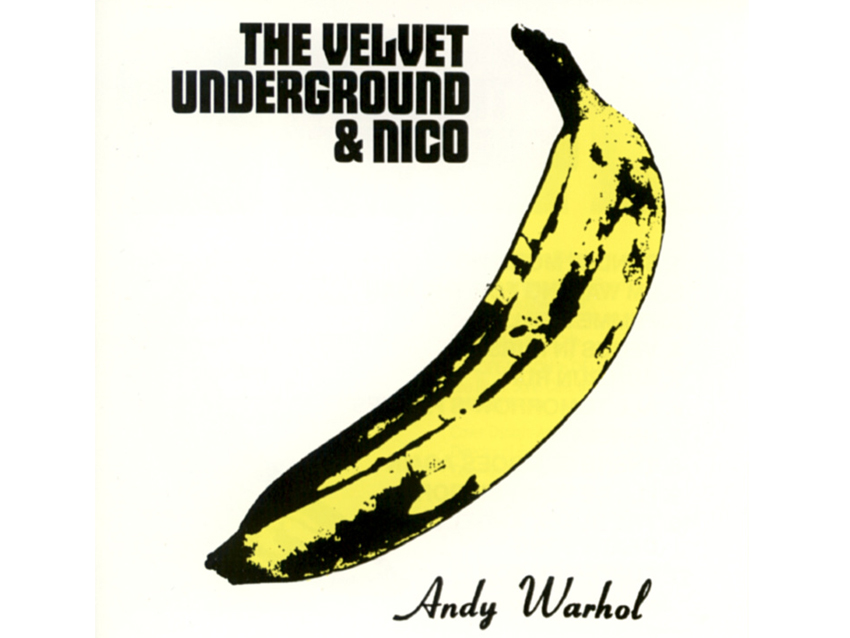
The Velvet Underground & Nico - The Velvet Underground & Nico (1967)
“It was done in 1965 and came out in ’67, and I think Lou Reed was really pushing the boundaries for the electric guitar at the time. On The Black Angel’s Death Song and Heroin, he was going past what other people were doing. The improvisation element went way into atonal, which opened the doors for a lot of experimental guitar players. So it’s a groundbreaking record.
“What’s also remarkable is the fact that Lou was doing pop songs in this context. I’ll Be Your Mirror is a great hooky song that sits alongside some of the adventurous stuff. There’s a Beauty And The Beast situation on the record that’s very compelling.”
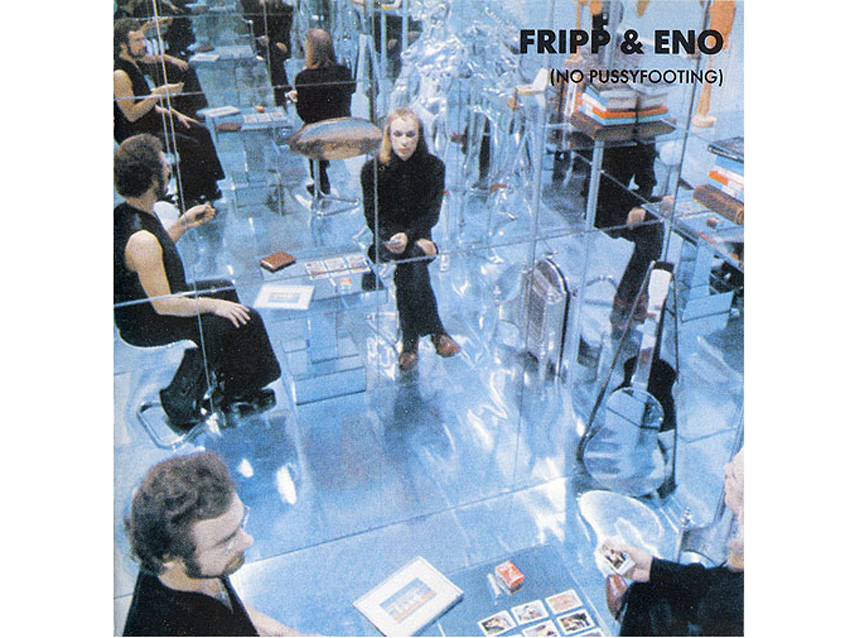
Fripp & Eno - No Pussyfooting (1973)
“I love pushing the boundaries of the guitar, just as Lou Reed did with the Velvet Underground and the Ramones did in their own way. What Robert Fripp does with Brian Eno, working with tape loops and creating an atmosphere with a few notes that you build on – it was very influential to what we now know as the ambient genre.
“I'm fascinated with the idea that background music can be art. Eno was way ahead of things in that regard. Music can serve different purposes. Sometimes you don’t want it to be in your face; you just might want it to float in the room and be your friend.
“No Pussyfooting was the first record that you could put on and it wouldn’t interrupt your conversation – and that was the point. But at the same time, it was artistic and textural and very melodic.”

Joe is a freelance journalist who has, over the past few decades, interviewed hundreds of guitarists for Guitar World, Guitar Player, MusicRadar and Classic Rock. He is also a former editor of Guitar World, contributing writer for Guitar Aficionado and VP of A&R for Island Records. He’s an enthusiastic guitarist, but he’s nowhere near the likes of the people he interviews. Surprisingly, his skills are more suited to the drums. If you need a drummer for your Beatles tribute band, look him up.
"At first the tension was unbelievable. Johnny was really cold, Dee Dee was OK but Joey was a sweetheart": The story of the Ramones' recording of Baby I Love You
"Reggae is more freeform than the blues. But more important, reggae is for everyone": Bob Marley and the Wailers' Catch a Fire, track-by-track
"At first the tension was unbelievable. Johnny was really cold, Dee Dee was OK but Joey was a sweetheart": The story of the Ramones' recording of Baby I Love You
"Reggae is more freeform than the blues. But more important, reggae is for everyone": Bob Marley and the Wailers' Catch a Fire, track-by-track









